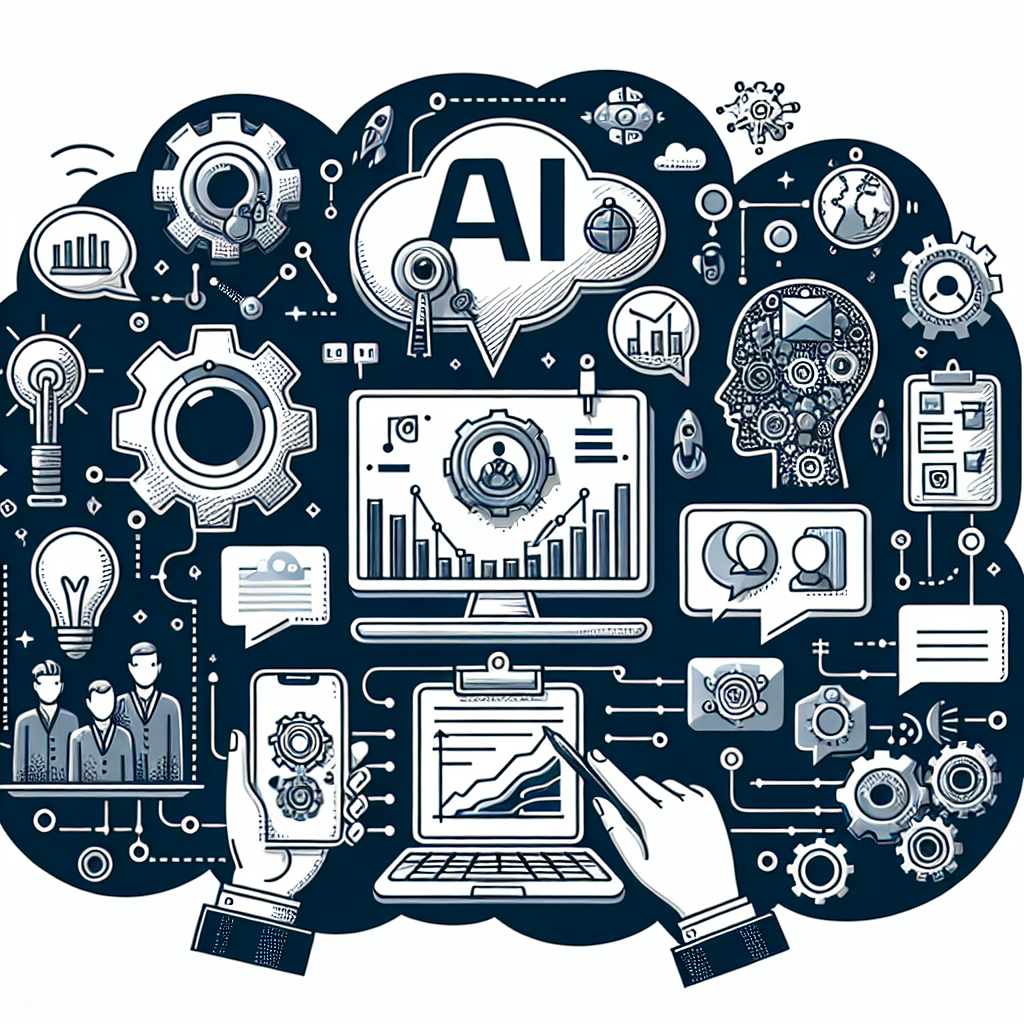In recent years, artificial intelligence (AI) has become increasingly integrated into various aspects of project management. AI technology has the potential to revolutionize the way projects are planned, executed, and monitored by improving collaboration and communication among team members. By leveraging AI tools and techniques, project managers can streamline project workflows, reduce manual tasks, and enhance decision-making processes. In this article, we will explore how AI project management can improve project collaboration and communication and provide insights into the benefits and challenges of implementing AI in project management.
AI Project Management: Enhancing Collaboration and Communication
Project management is a complex and multifaceted discipline that requires effective collaboration and communication among team members. In traditional project management approaches, project managers often face challenges such as information overload, lack of real-time data, and difficulty in coordinating tasks among team members. AI technology offers innovative solutions to these challenges by automating routine tasks, providing real-time insights, and facilitating seamless communication within project teams.
One of the key benefits of AI project management is its ability to automate repetitive tasks, such as scheduling meetings, tracking project progress, and generating reports. By using AI-powered project management tools, project managers can free up their time to focus on strategic decision-making and problem-solving activities. For example, AI algorithms can analyze historical project data to identify patterns and trends, predict potential risks, and recommend appropriate actions to mitigate them. This predictive analytics capability enables project managers to make informed decisions based on data-driven insights, rather than relying on intuition or experience alone.
Another advantage of AI project management is its ability to provide real-time visibility into project status and performance. AI tools can aggregate data from multiple sources, such as project management software, email communications, and chat messages, to create a comprehensive view of the project’s progress. This real-time dashboard enables project managers to monitor key metrics, track milestones, and identify bottlenecks in the project workflow. By having access to up-to-date information, project teams can make timely adjustments to their plans and ensure that project objectives are met within the specified timeline and budget.
Furthermore, AI project management can improve communication among team members by facilitating collaboration and knowledge sharing. AI-powered chatbots can be used to answer common project-related questions, provide guidance on best practices, and assist team members in resolving issues. Additionally, AI tools can analyze communication patterns within project teams to identify potential conflicts, misunderstandings, or barriers to collaboration. By proactively addressing these communication issues, project managers can foster a more cohesive and productive team environment.
Benefits of AI Project Management
There are several benefits of implementing AI project management in organizations, including:
1. Improved efficiency: AI technology can automate routine tasks, such as data entry, scheduling, and reporting, which allows project managers to focus on strategic activities that add value to the project.
2. Enhanced decision-making: AI tools can analyze large volumes of data to identify trends, patterns, and insights that can inform better decision-making processes.
3. Real-time insights: AI project management tools provide real-time visibility into project status, performance, and risks, enabling project managers to take timely actions to address issues and ensure project success.
4. Increased collaboration: AI-powered chatbots and communication tools facilitate seamless communication among team members, leading to improved collaboration and knowledge sharing.
Challenges of AI Project Management
While AI project management offers numerous benefits, there are also challenges associated with its implementation, including:
1. Data privacy and security: AI tools rely on large amounts of data to generate insights and recommendations, which raises concerns about data privacy and security. Organizations must ensure that sensitive project data is protected from unauthorized access or misuse.
2. Integration with existing systems: Implementing AI project management tools may require integration with existing project management software and IT infrastructure, which can be complex and time-consuming.
3. Training and upskilling: Project managers and team members may require training to effectively use AI tools and leverage their capabilities to improve project outcomes.
4. Resistance to change: Some team members may be resistant to adopting AI project management tools due to fear of job displacement or lack of understanding of how AI technology can benefit their work.
FAQs
Q: How can AI project management improve collaboration among remote teams?
A: AI project management tools can facilitate communication and collaboration among remote teams by providing real-time insights, automating routine tasks, and enabling seamless knowledge sharing.
Q: What are some examples of AI project management tools?
A: Examples of AI project management tools include chatbots, predictive analytics software, project scheduling algorithms, and automated reporting systems.
Q: How can AI project management enhance decision-making processes?
A: AI technology can analyze large volumes of data to identify patterns, trends, and insights that can inform better decision-making processes, such as risk assessment, resource allocation, and project prioritization.
Q: What are the key considerations for organizations looking to implement AI project management?
A: Organizations should consider factors such as data privacy and security, integration with existing systems, training and upskilling requirements, and change management strategies when implementing AI project management.
In conclusion, AI project management offers a range of benefits for organizations looking to improve collaboration and communication among project teams. By leveraging AI tools and techniques, project managers can streamline workflows, enhance decision-making processes, and foster a more cohesive and productive team environment. While there are challenges associated with implementing AI project management, organizations can overcome these obstacles by addressing data privacy and security concerns, integrating AI tools with existing systems, providing training to team members, and managing resistance to change. Overall, AI project management has the potential to revolutionize the way projects are managed and executed, leading to improved project outcomes and greater organizational success.

